It is 5:15 p.m. You just got back from the gym. The dog is barking with euphoric happiness. You are tired, sweaty, and a little smelly. All you want is to grab a shower.
The phone rings. You manage to get control of the phone on the last ring only to hear:
“Hello, this is Robert Smith from ABC Company calling about the controller position…”
Meanwhile, the dog is still barking and the bath is starting to overfill.
The dreaded phone interview! As if the stress of the call isn’t enough, it is now a surprise attack, intended to screen you out of the process, delivered when you least expect it.
With the expense of recruiting, telephone interviews have become a common place first step for employers. Fast, efficient, and economical for the employer, but a disadvantage to the candidate and in some cases, causing momentary paralysis of both the mouth and brain.
Let’s look at a few ideas for leveling the playing field.
Adopt the Boy Scout Motto, and Be Prepared!
First, be sure you have conducted research on each company to whom you have sent your resume. Having some familiarity with the company and their services or products and target market will allow you to breathe a little easier when you hear the company name.
Your research should be in an easy-to-find, easy-to-access location. Whether that is a spreadsheet, database, or file folder, be sure your research, a note pad, and pen are quickly accessible.
Which would lead us to the timing of the call. If it is 5:10 when the phone rings and you have a meeting with your team at 5:15, you really have two viable options. Don’t answer the phone; let it go to voice mail, and return the call when it is more convenient. Or, answer and request to reschedule.
Now might be a good time to interject an important question. “What does your voice mail message say?” Is it a cute, albeit barely intelligible recording by your youngest child? Is it a bare bones, “you know what to do, so do it” type message?
A professional voice mail message is one that gives some identifying indicator that the person calling has reached the right number. Include at least one of the following… your first name, your last name, or your phone number.
If you choose to let the call go to voice mail, return the call as soon as your situation permits. Be prepared to be interviewed when you return the call, though, even if it is after hours.
If you do answer, but the timing is not convenient, politely express your interest and enthusiasm for the position and then provide the excuse and ask to reschedule.
While part of the phone interview strategy is to catch a candidate off-guard and unprepared, it is an unfair advantage. Maintaining control of a job search is critical to being successful, and that includes managing the phone interview.
Being prepared also means that you are intimately familiar with and practiced at delivering your value proposition. Whether you are in a phone interview or a face-to-face interview, it is always about how you did the job and the impact to the bottom line.
This is a Big Deal!
While a phone interview might appear to be informal, it is very important and formal part of the interviewing process. Because we aren’t face-to-face, the tendency to be more casual, relaxed, informal — and even to multi-task — is the subtle trap.
Because you can’t be seen is precisely why what you say and how you say it is significant. The phone is not an excuse for using lazy language (“ums”, “ahs”, and “you knows”). Be just as articulate as you would be in a formal interview. If your clothes tend to make you feel too relaxed, put on a business suit. If leaning back in your chair lulls you into complacency, stand up. And smile because your smile can be heard on the other end.
Throw away the gum, put out your cigarette, don’t sip coffee excessively or unnecessarily, and by all means, do not multi-task. Phone interviewers are savvy and attuned to every nuance.
A quick rule of thumb: whatever you wouldn’t do in a formal interview, don’t do in a phone interview.
Answering the Most-Feared Question
The timing is right; the research is at your fingertips; the introduction chit chat is finished; and while you are taking a deep, calming breath, the first question is posed:
“Tell me about yourself.”
Since this question usually pops up in both a phone interview and a face-to-face interview and sets the tone for the balance of the interview, how you handle it is fundamental to the process.
Be wary of an interviewer who allows you free reign to ramble on, and on, and on. Another trap! Typically your answer should be no more than 1-2 minutes and focus on conveying accomplishment, growth, leadership, and results.
Take control.
One winning strategy for answering this question is to ask, “I’d love to! Where would you like me to start?” The answer will reveal what information the interviewer really wants to know so you can deliver a targeted response.
Follow Up
Immediately following the interview, follow up with a thank you note that captures the key points from the conversation. This small act of courteous professionalism will differentiate you from the other candidates.
Conducting a confident phone interview is really about two things: being prepared and capturing important details for use in following up. Confidently handling a phone screen will ensure that you move to the next step when the right company calls.
Here are a few other tips for handling the phone interview that should help:
Before the face-to-face interviews, you may have a telephone interview. Here are some tips to ensure a successful telephone interview.
• Schedule the interview time for a period when you won’t be distracted.
• Control your environment. Keep the dog chained in the backyard. Make sure the kids have a babysitter. Turn off TVs and radios. Ensure all distractions are kept to a minimum. Better yet, eliminate all distractions.
• Use a landline if one is available.
• Have a glass of water nearby, in case you get dry mouth.
• Have your interview notes and resume in front of you. Highlight those areas you believe are of most importance.
• Vary your pitch and response time. Don’t rush. Calculate your responses.
• Do not multi-task. Pay careful attention to the process. Having to ask the interviewer to repeat a question or comment signals inattention.
For more on career tips, check out these posts:
 Social Media and Employment |
 Stop Auditioning for Jobs! |
|---|
| Join Us On Twitter: |
|---|
 |
|---|
| Like Us On Facebook: |
|---|
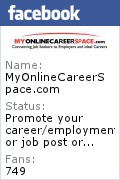 |
|---|





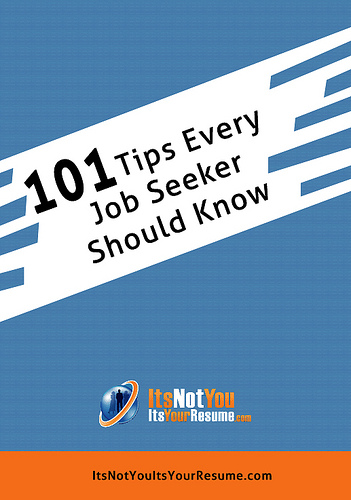



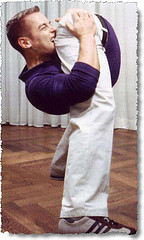
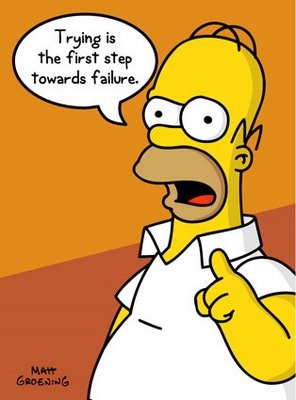

![Higher Learning Leads to Higher Earnings, Especially for Men [InfoGraphic] Higher Learning Leads to Higher Earnings, Especially for Men [InfoGraphic]](../4022/4340939642_374fbff6e3_m.jpg)

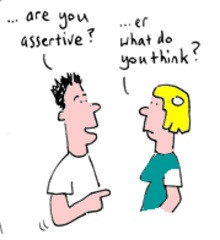




7 Responses to “How to Handle Phone Interviews”